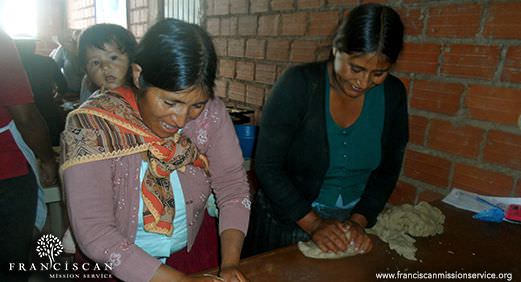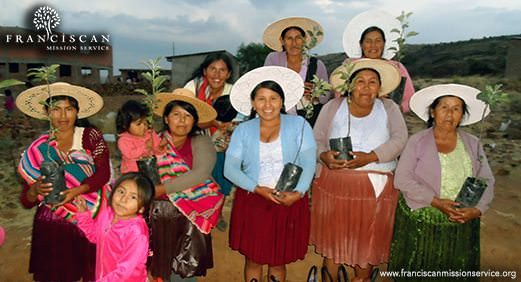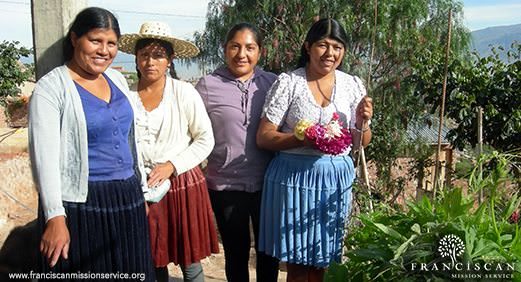Exporting Racism, Where Do We Stand?

Editor’s Note: Missioner Annemarie Barrett reflects on the topic of prejudice in the United States and how it affects the rest of the world but in particular, how she’s seen it affect Bolivia.
Since the beginning of formation with Franciscan Mission Service, I was taught that to follow the example of Francis of Assisi was to learn to see reality from the perspective of the poor and marginalized. As Franciscans we are invited to this ongoing conversion, a life long learning process of transforming our prejudices into the capacity for compassion and empathy.
As primary election season begins in the United States, I have found myself immersed in news and analyses of the political climate across the country and it has forced me to reflect on where Francis would have placed himself in the midst of such volatile conflict. I have asked, as a Franciscan, where do I place myself in the midst of such volatile conflict?
I imagine many of you who are part of the Franciscan family are asking similar questions during this election year. You may be asking yourselves how to stand in solidarity with the most marginalized in the US, those experiencing homelessness, joblessness, and poverty, particularly people of color and women.
In struggling with these questions myself, I am often overwhelmed by the parallels between the racism in the US and the reality of racism here in Bolivia. I am angered by the historical connections between the racism and political climate in the US and the racism and political climate in Bolivia. I am angered by the suffering these connections cause in the lives of my friends here in Bolivia.
In the age of globalization, I believe that we are called to confess that as one of the most powerful and influential countries on this planet, the racism that exists in the US is exported worldwide. As we approach US presidential elections, I believe we are called to critically analyze how our political decisions in the US can affect our sisters and brothers abroad.
If you are a white person who cannot experience racism first hand, like me, it is sometimes hard to believe it to be real. But in this post I would like to offer just one solid example of how US policy fuels racism and discrimination of our sisters and brothers in the communities where we live and work here in Bolivia.
On Saturday May 24th, 2008 in Sucre, Bolivia, the racism seeded into Bolivian society since the dawn of colonization was acted out against indigenous communities who had come to the city that day to see the country’s first indigenous president speak. “More than two dozen indigenous peasants were beaten and captured, their few possessions were taken away and they were forced to walk for three miles and then kneel shirtless in front of Sucre’s House of Liberty. Sucre mobs humiliated their indigenous captives in a repeat of a ritual from the most brutal pages of colonialism.” (democracyctr.org) (Follow this link for a full description of that painful day and pictures of the events.)
That happened less than ten years ago.
But you may ask, what does that incident have to do with the US? Well, these racist attacks are not isolated incidents in Bolivia. And there are records that show that the USAID gave 4 million dollars to the Media Luna (Half Moon), a separatist movement in Bolivia synonymous with anti-indigenous racism, between 2006 and 2009.
In my own journey towards racial reconciliation and solidarity, I have learned that acknowledging these hard and ugly truths is a part of our ongoing conversion towards seeing the reality from the perspective of the poor and marginalized. We are invited to mourn the sins of our government and work for change.
Looking at the reality here in Bolivia from the perspective of the indigenous women in my community, I cannot deny the connection between the policies made in the US and the discrimination these friends of mine experience daily. And because I consider these women to be my sisters, I feel called to respond.
When you support our work financially you make an investment in these communities, but I pray that your solidarity will not end there. This election season, I invite you to join me in responding; I invite you to stand up with me and respond.
Reflection Question: As a Franciscan, how will you take a stand in the midst of these conflicts?
Other Resources:
- An interview (in spanish) about US intrusion of policies in Bolivia
- A documentary (in spanish) about racism in Bolivia, specifically that day in Sucre
Tagged in:


